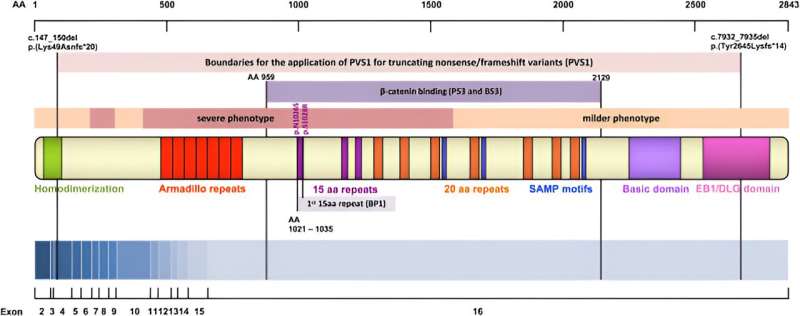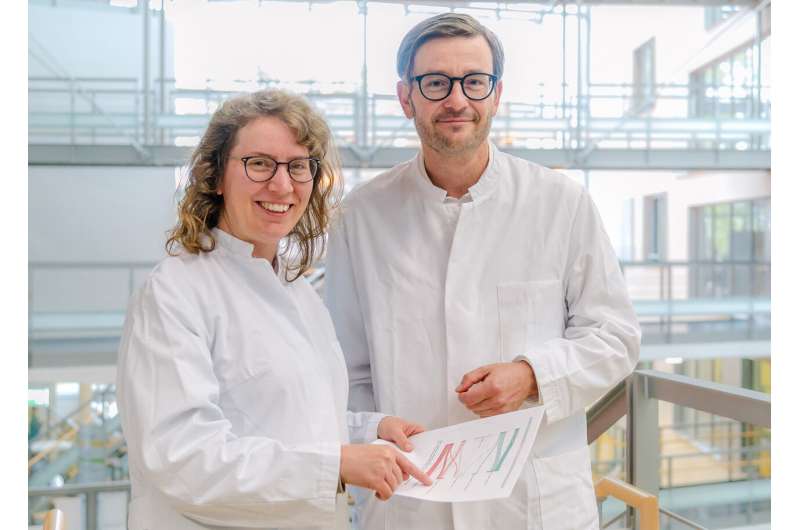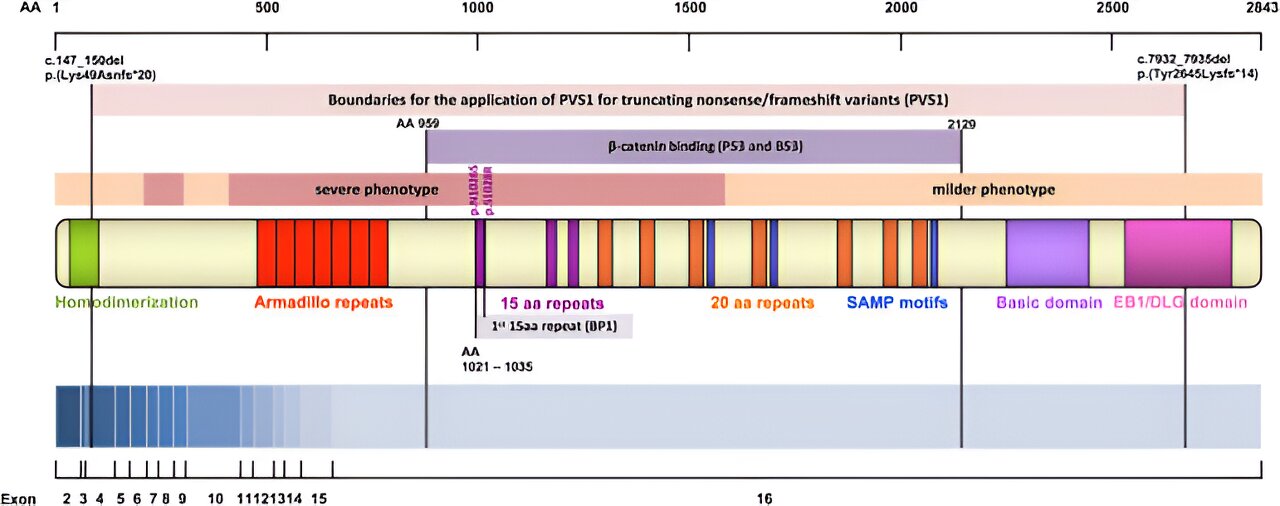
Genetic confirmation of the suspected diagnosis of “hereditary colorectal cancer” is of great importance for the medical care of affected families. However, many of the variants identified in the known genes cannot currently be classified with certainty with regard to their causative role in tumor formation.
Under the leadership of the Institute of Human Genetics at the University Hospital Bonn (UKB), an international team of researchers has developed gene-specific classification criteria by which the medical relevance of a significant proportion of unclear variants can be reassessed. The results of the study is published in Genetics in Medicine.
Families with hereditary tumor syndromes are at high risk for the occurrence of certain cancers, such as colorectal cancer or breast cancer. For many more common hereditary tumor syndromes, very effective, intensive, and early-onset surveillance programs and other preventive measures are available. Timely detection and reliable diagnosis of a hereditary predisposition is therefore extremely important for affected families.
Rare gene variants with unclear relevance for tumor formation
However, as a result of increasingly comprehensive genetic testing, more and more rare genetic variants are being found in the responsible genes, the causal significance of which for tumor development is currently still unclear. These are referred to as variants of uncertain significance (VUS). As a consequence, among the genetic variants listed in public international databases (especially ClinVar), in some genes more than 50% of variants are now VUS.
“These variants cannot be used to make a diagnosis, nor can they be used to test healthy at-risk individuals; on the other hand, they often create a great deal of uncertainty, as carriers of a VUS may be at increased risk of tumors,” says first author Dr. Isabel Spier of the Institute of Human Genetics. “Clarifying the causal role of VUS in cancer predisposition therefore directly contributes to better patient care.”

Possible relief of carriers of rare gene variants
At the Center for Hereditary Tumor Diseases of the UKB, researchers have been working for years to identify new genetic causes of hereditary tumor diseases. To this end, the research group led by Prof. Stefan Aretz collaborated with an international and multidisciplinary team of experts consisting of physicians and biologists. The group developed and validated specific classification criteria for assessing variants in the APC gene.
Hereditary genetic alterations in APC are causative for familial adenomatous polyposis (FAP), one of the most common causes of hereditary colorectal cancer or hereditary polyp disease of the gastrointestinal tract. “The developed gene-specific classification criteria will allow a significant proportion of VUS of the APC gene to be reclassified into a medically relevant category” explains Spier. “We expect that a large proportion of VUS will be assessed as harmless, rare variants. This can then relieve all carriers of these variants worldwide.”
“The study was only possible due to our excellent worldwide scientific networking and the establishment of an international committee for variant assessment, which we carried out in particular together with the International Society for Gastrointestinal Hereditary Tumors (InSiGHT), and the Clinical Genome Resource (ClinGen),” says Prof. Aretz. “I would like to highlight the close collaboration with Dr. Xiaoyu Yin from Melbourne, Australia, during her six-months stay as a visiting scientist at UKB.”
Subsequently, the Bonn researchers are planning an extensive reclassification study to re-evaluate, if possible, all previously known VUS in the APC gene with regard to their relevance. The work will also serve as a model project for similar approaches with other cancer genes.
More information:
Isabel Spier et al, Gene-specific ACMG/AMP classification criteria for germline APC variants: Recommendations from the ClinGen InSiGHT Hereditary Colorectal Cancer/Polyposis Variant Curation Expert Panel, Genetics in Medicine (2023). DOI: 10.1016/j.gim.2023.100992
Journal information:
Genetics in Medicine
Source: Read Full Article
